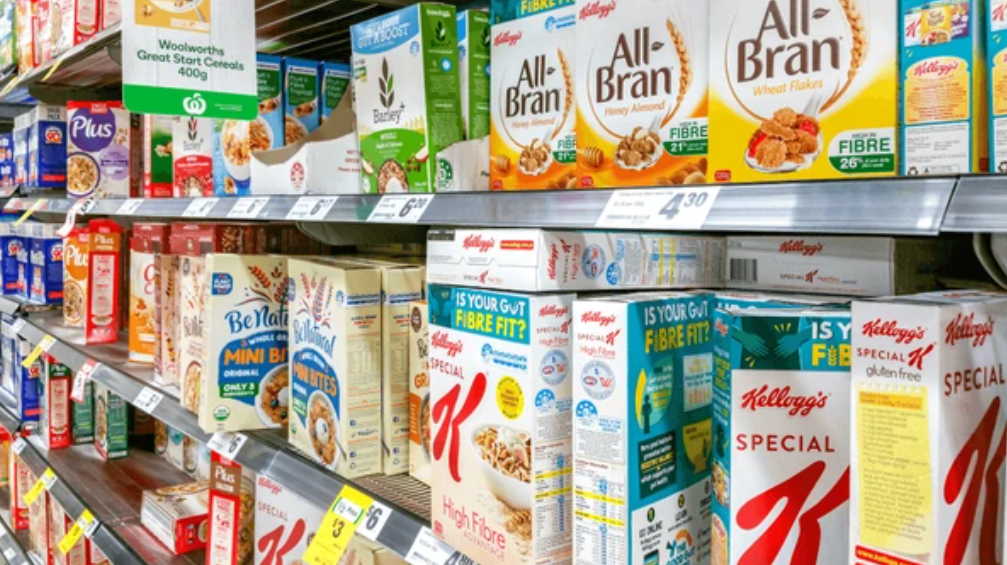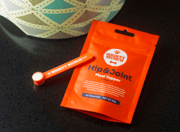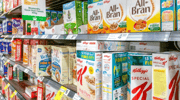
Forget everything you thought you knew about the breakfast table's biggest villains. While we've long been warned about bacon and sausages, new research suggests that an innocent-looking bowl of cereal might pose an equally concerning threat to your health.
Australian researchers, along with international colleagues, have uncovered compelling evidence linking ultra-processed breakfast cereals to increased cancer risk, and the findings might make you rethink that morning routine you've had for decades.
In this Article
The surprising scale of the problem
On average, ultra-processed foods represented almost 40 per cent of total energy intake among Australian adults, according to research from Monash University. That's a staggering figure when you consider that breakfast cereals form a significant chunk of this consumption.
The numbers paint an even starker picture. According to the ABS, the consumption of breakfast cereal flakes is estimated to be 12.6 grams daily per capita in 2020-21, while the apparent daily consumption per capita of grains and cereals in 2020-21 was 3.8 serves - well below the average consumption of grains and cereals of 5.5 servings per capita recommended by the Australian Dietary Guidelines.
"For every 10 per cent increase in UPF consumption, the risk of cancer rises by 12 per cent"
What the research actually tells us
The evidence comes from multiple large-scale studies tracking hundreds of thousands of people over the years. A 10 per cent increment in the diet's proportion of UPF was associated with increased risk of overall cancer and breast cancer.
But here's what makes this particularly relevant for Australians over 60: Every 10 percentage point increment in UPF consumption was associated with an increased incidence of overall cancer and specifically ovarian cancer, and with an increased risk of overall, ovarian, and breast cancer-related mortality.
What makes a cereal "ultra-processed"?
Ultra-processed foods contain additives like artificial flavours, colours, sweeteners, and ingredients not typically used in home cooking. Think modified starches, protein isolates, and preservatives. Popular examples include many breakfast cereals with added sugars, artificial colours, and long ingredient lists you can't pronounce.
The Australian breakfast landscape
Australia's breakfast cereal market tells an interesting story. The Australian breakfast cereals market, valued at AUD 1.67 billion in 2024, is expected to grow at a compound annual growth rate (CAGR) of 4.20 per cent from 2025 to 2034, potentially reaching AUD 2.52 billion by 2034.
Yet consumer attitudes are shifting. Many Australians now associate packaged breakfast cereals with ultra-processed, sugary foods, prompting a shift towards alternative breakfast options, with consumers' health and wellness awareness expected to continue evolving, particularly in terms of how they perceive breakfast cereals.
The brands we know and love
Let's talk about the cereals sitting in Australian pantries right now. The top Australian Cereal Brands include Weet-Bix, ALDI Goldenvale, Carman's, Woolworths, Nestle Milo, Coles Corn Flakes, and Uncle Tobys.
Take Weet-Bix, Australia's beloved breakfast staple. As far as nutrition goes, Weet-Bix compare very favourably! They have a Health Star Rating of 5, only 3g per 100g of added sugar, and are 97 per cent wholegrains. But even seemingly healthy options need scrutiny.
On the other end of the spectrum, Coco Pops are in no way healthy. Loaded with sugar and low in fibre, they're probably better described as a dessert than a breakfast food, with Kellogg's Coco Pops having 32.3g of added sugar per 100g, meaning you're consuming around 9.7g of sugar per 30g bowl.
Understanding the mechanisms
The research suggests several ways ultra-processed cereals might increase cancer risk. UPFs may increase cancer risk via their obesogenic properties as well as through exposure to potentially carcinogenic compounds such as certain food additives and neoformed processing contaminants.
Laboratory studies have shown that components of ultra-processed foods can alter gut microbiota, increase inflammation, damage DNA, and modify gene expression, among other effects. Diets high in ultra-processed foods also promote systemic inflammation and oxidative stress, both of which contribute to cancer development.
The Australian expert perspective
Local research adds weight to international findings. Published in the journal Age and Ageing, the study showed an association between increased consumption of ultra-processed foods (UPF) and biological ageing. For every 10 per cent increase in UPF consumption, the gap between biological and chronological age rose by 2.4 months.
Dr Barbara Cardoso from Monash University's research team emphasises the relevance for Australians: "Our findings show that reducing ultra-processed foods in the diet may help slow the biological ageing trajectory, bringing another reason to target ultra-processed foods when considering strategies to promote healthy ageing".
Key Takeaways
- Choose cereals with 5 stars on the Health Star Rating system
- Look for less than 5g of added sugar per serve
- Aim for at least 4g of fibre per serve
- If you can't pronounce ingredients, consider alternatives
- Try mixing half your usual cereal with plain rolled oats
What this means for your health
It's crucial to understand that this study is observational, so it does not show a causal link between ultra-processed foods and cancer due to the observational nature of the research. More work is needed in this area to establish a causal link.
However, the consistency across multiple large studies is compelling. Researchers have found that a higher intake of ultra-processed foods (UPF) increases the risk of developing many types of cancer, including colorectal, breast and pancreatic cancers.
The practical approach
While it seems better to have a diet consisting of minimally processed foods, a lot of us don't have the time or the budget for it. Ultra-processed foods can be cheaper, last longer before expiring and can be easier to prepare.
The key is balance and gradual change. If you eat a lot of ultra-processed foods that are high in salt, sugar and saturated fats, it's a good idea to try and cut down. Reading food labels can help you work out which foods they are and make the best choice for you. You could also think about whether you can make any healthier swaps to help balance your diet.
Small changes, significant impact
Remember, you don't need to overhaul your entire breakfast routine overnight. Even just 1 or 2 everyday swaps can really make a difference and go a long way to making each day healthier, but the more you make, the better! Sugar and fat are the biggest things to watch out for at breakfast time.
Consider starting with simple swaps: mix half your usual cereal with plain rolled oats, choose cereals with shorter ingredient lists, or try adding fresh fruit to naturally sweeten less-processed options.
What This Means For You
The Australian food landscape offers plenty of choices that can satisfy both your taste buds and your health goals. With more than 300 different breakfast cereals available in Australian supermarkets, it's no wonder we can get confused in the cereal aisle. If you want to know how to choose a cereal that will give you the best start to your day, focus on those health star ratings, fibre content, and ingredient lists you can actually understand.
While the research continues to evolve, one thing remains clear: the choices you make at breakfast can have lasting impacts on your health. Armed with this knowledge and the many alternatives available in Australian supermarkets, you're well-equipped to make breakfast decisions that support your long-term wellbeing.
What changes will you make to your morning routine? Share your thoughts and favourite healthy breakfast swaps in the comments below - your suggestions might just help fellow readers discover their new morning favourite.
Mediterranean Diet and Ultra-Processed Food Intake in Older Australian Adults—Associations with Frailty and Cardiometabolic Conditions
Our major findings are that in this population of older adults, (a) pre-frailty and frailty are
https://www.mdpi.com/2072-6643/16/17/2978
Ultra-processed foods and cancer risk: from global food systems to individual exposures and mechanisms | British Journal of Cancer
Available evidence suggests that UPFs may increase cancer risk via their obesogenic properties as well as through exposure to potentially carcinogenic...
https://www.nature.com/articles/s41416-022-01749-y
Ultra-processed food consumption and cancer risk: A systematic review and meta-analysis - ScienceDirect
A systematic literature search for observational studies investigating the association between cancer risk and UPF consumption, determined by the NOVA...
https://www.sciencedirect.com/science/article/abs/pii/S0261561423000997
Senior Nutrition | Easy Breakfast Ideas For Seniors
The beauty of breakfast is that whether you’re looking for something sweet or savory, there are healthy options to satisfy any craving.
https://www.storypoint.com/resources/senior-nutrition/senior-nutrition-breakfast-ideas/
Ultra-processed food consumption, cancer risk and cancer mortality: a large-scale prospective analysis within the UK Biobank - PubMed
The Cancer Research UK and World Cancer Research Fund.
https://pubmed.ncbi.nlm.nih.gov/36880051/
Ultra-processed food consumption, cancer risk and cancer mortality: a large-scale prospective analysis within the UK Biobank - PubMed
... Plant-based dietary patterns and ultra-processed food consumption: a cross-sectional analysis of the UK Biobank.
https://pubmed.ncbi.nlm.nih.gov/36880051/
Ultraprocessed Foods: Science Facts and Shopping Tips | Dana-Farber Cancer Institute
· Unprocessed foods like fresh fruits, vegetables, poultry, and fish. · Processed culinary ingredients like butter, oil, salt, and sugar.
https://blog.dana-farber.org/insight/2024/02/ultraprocessed-foods-science-facts-and-shopping-tips/
Mediterranean Diet and Ultra-Processed Food Intake in Older Australian Adults—Associations with Frailty and Cardiometabolic Conditions
Dietary patterns contribute to overall health and diseases of ageing but are understudied in older adults. As such, we first aimed to develop dietary ...
https://www.mdpi.com/2072-6643/16/17/2978
Mediterranean Diet and Ultra-Processed Food Intake in Older Australian Adults—Associations with Frailty and Cardiometabolic Conditions
She is the Director of the large ancillary study, the ASPREE Healthy Ageing Biobank, and is currently the Australian principal investigator of the NIH...
https://www.mdpi.com/2072-6643/16/17/2978
Healthier food swaps - Food facts - Healthier Families - NHS
With a speedy scan of your family's favourite foods, you can find healthier swaps for next time you shop. It's as easy as scan, swipe, swap!
https://www.nhs.uk/healthier-families/food-facts/healthier-food-swaps/
Ultra-processed foods linked to increased cancer risk, diabetes, and heart disease | World Cancer Research Fund
Higher consumption of UPF = higher risk of a combination of chronic diseases, including cancer, diabetes and heart disease, says study.
https://www.wcrf.org/about-us/news-...eased-cancer-risk-diabetes-and-heart-disease/
Ultra-processed foods linked to increased cancer risk, diabetes, and heart disease | World Cancer Research Fund
https://www.wcrf.org/about-us/news-...eased-cancer-risk-diabetes-and-heart-disease/
Consumption of ultra-processed foods and risk of multimorbidity of cancer and cardiometabolic diseases: a multinational cohort study - The Lancet Regional Health – Europe
Data are expressed as arithmetic mean ± standard deviation (SD) if not stated otherwise. Abbreviations: EPIC, European Prospective Investigation into ...
https://www.thelancet.com/journals/lanepe/article/PIIS2666-7762(23)00190-4/fulltext
Consumption of ultra-processed foods and risk of multimorbidity of cancer and cardiometabolic diseases: a multinational cohort study - The Lancet Regional Health – Europe
... Country-specific characteristics of 106,116 men in the EPIC study. Data are expressed as arithmetic mean ± standard deviation (SD) if not stated o...
https://www.thelancet.com/journals/lanepe/article/PIIS2666-7762(23)00190-4/fulltext
Healthy 7 Day Meal Plan For Seniors
This 7-day healthy meal plan for seniors provides easy and nutritious meal and snack options that will make it easy for you to meet your needs, all wh...
https://www.australianeggs.org.au/nutrition/meal-plans/healthy-seniors-meal-plan







